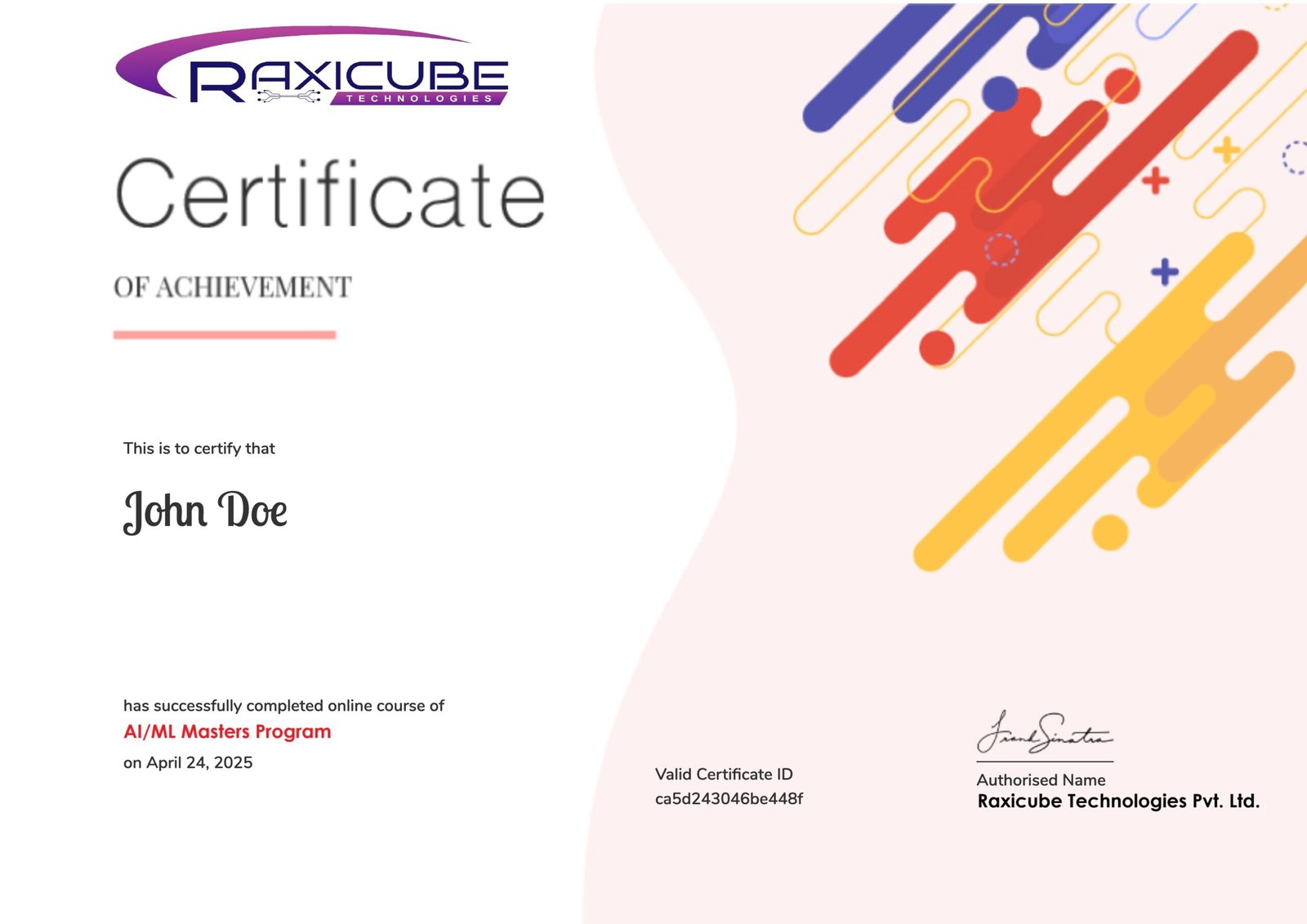Our Databricks Training (Basic to Advanced) course is designed to help professionals and students master the Databricks Lakehouse Platform from fundamentals to advanced concepts, enabling them to build powerful, scalable, and cost-effective data solutions. This comprehensive program covers Databricks essentials, Delta Lake, Apache Spark, Databricks SQL, Unity Catalog, Delta Live Tables, BI integrations, real-time streaming pipelines, security, governance, performance tuning, and cost optimization. You will gain hands-on experience in managing clusters, orchestrating workflows, handling both batch and streaming data, and implementing Medallion Architecture for enterprise-grade data engineering. With practical projects and real-world use cases, learners will develop the skills to design, optimize, and govern data pipelines efficiently. By the end of this course, you will be able to confidently work with Databricks on Azure, AWS, or GCP, making you job-ready for roles like Data Engineer, Data Analyst, and BI Developer, with strong expertise in the modern data ecosystem.
If you have three or more people in your training we will be delighted to offer you a group discount
If you want to give the Trending technology experience to your esteemed employees, we are here to help you.
Introduction to Delta Lake
Reading & Writing Data (CSV, JSON, Parquet, Delta)
Schema Evolution & Enforcement
Partitioning, Bucketing, and Clustering
Delta Lake Features: ACID Transactions, Time Travel, Cloning
Batch & Streaming Ingestion with Auto Loader
Optimizing Storage: OPTIMIZE, ZORDER, VACUUM
Raxicube Technologies Certification is accredited by all major Global Companies around the world. We provide certification after completion of the theoretical and practical sessions to freshers as well as corporate trainees. Our certification at Raxicube Technologies is accredited worldwide, increasing the value of your resume. This allows you to attain leading job posts with the help of this certification in leading MNC’s of the world. The certification is only provided after successful completion of our training and practical based projects.








Databricks is a cloud-based platform that simplifies big data processing and analytics. Learning it helps you build skills in data engineering, analytics, and modern cloud data platforms, which are highly in demand.
This course is designed for fresh graduates, working professionals, data analysts, developers, and anyone interested in data engineering and analytics.
Basic knowledge of SQL or data concepts is helpful, but not mandatory. We cover Databricks from beginner to advanced level.
The Databricks training program typically runs for 8–12 weeks, depending on batch schedules and learning pace.
Yes, the course starts with basics and gradually moves to advanced topics. Beginners can easily follow along.
Yes, the course covers Databricks on major cloud platforms, with a primary focus on Azure Databricks as it is widely used.
We cover Databricks basics, clusters, Delta Lake, SQL, Unity Catalog, Data Engineering, Streaming, Asset Bundles, and project work.
Yes, every module includes hands-on labs, exercises, and real-time projects to practice.
Yes, you will receive a course completion certificate after finishing the program.
You will get 1.5 years of access to the study materials for this AI and Machine Learning Course. You can access it anytime from anywhere.
You will never miss a lecture at Raxicube Technologies. You can view the recorded session of any missed live class at your convenience.
Yes, the training aligns with official Databricks certifications and prepares you for them.
Yes, you will receive study notes, interview questions, and project documentation.
Yes, since we start from basics, even learners from non-programming backgrounds can join.
You can apply for roles like Data Engineer, Databricks Developer, Big Data Engineer, and Cloud Data Engineer.
we provide resume building, interview preparation, and placement assistance.
Top companies like Microsoft, Accenture, Infosys, Deloitte, Cognizant, and many startups hire Databricks professionals.
On average, Databricks Data Engineers earn between ₹7–20 LPA in India and $90,000–$140,000 abroad, depending on experience.
Definitely, yes. We help students in their job search endeavors, providing guidance and support to secure relevant opportunities.
Yes, with growing cloud adoption, Databricks professionals are in very high demand globally.
We help you create a professional, job-ready resume highlighting Databricks skills and projects.
we provide mock interviews, interview questions, and guidance.
Freshers can learn Databricks and build a career in Data Engineering.
Yes, IT professionals can upskill and transition into high-demand data roles.
Certification is not mandatory but highly recommended to boost your profile.
A Spark Developer works mainly on Spark, while a Databricks Engineer works on Spark, Delta Lake, SQL, governance, and cloud.
Yes, many professionals from testing, support, or BI backgrounds transition successfully after this course.
If you practice consistently, you can be job-ready in 2–3 months.
Databricks SQL and reporting integration make it very useful for Analysts and BI professionals.
Definitely. Many students from non-data backgrounds (testing, support, business analysts) have successfully transitioned into Data Engineering roles through this training.
Databricks is widely used across banking, healthcare, e-commerce, retail, telecom, and finance for large-scale data processing and analytics.
Yes, this training aligns with Databricks Certified Data Engineer Associate and other advanced certifications.
Databricks unifies data engineering, analytics, and governance into a single Lakehouse platform, eliminating silos and boosting efficiency.
Because Databricks is becoming the standard for cloud data engineering, and mastering it now gives you a career edge in the future job market.
The course progresses from Databricks basics → Delta Lake → Spark → SQL → Governance → Real-time Data Engineering → Capstone Project.
Databricks is a data lakehouse platform that combines data engineering, machine learning, and analytics, while Snowflake is primarily a cloud data warehouse designed for structured data and BI workloads. Databricks handles both structured and unstructured data, whereas Snowflake is more SQL-centric.
If you are aiming for data engineering, large-scale processing, or AI/ML projects, Databricks is the right choice. If your focus is on BI, SQL analytics, and reporting, Snowflake is better. Many companies actually use both together.
Costs depend on workload type. For ETL and big data pipelines, Databricks can be more cost-effective. For pure reporting use cases, Snowflake or Redshift may be cheaper. Companies often mix and match depending on business needs.
Yes, many enterprises use Databricks for data processing and transformation and then move curated data into Snowflake for reporting and analytics. They complement each other rather than compete directly.
Both are highly in demand. Databricks is popular in data engineering, big data, and AI roles, while Snowflake dominates BI and analytics jobs. Learning both can maximize career opportunities.
Not exactly. Databricks acts as a lakehouse (a hybrid of data lake + warehouse). Many organizations still keep Redshift, Snowflake, or Synapse for BI/reporting but use Databricks for processing, transformations, and governance.